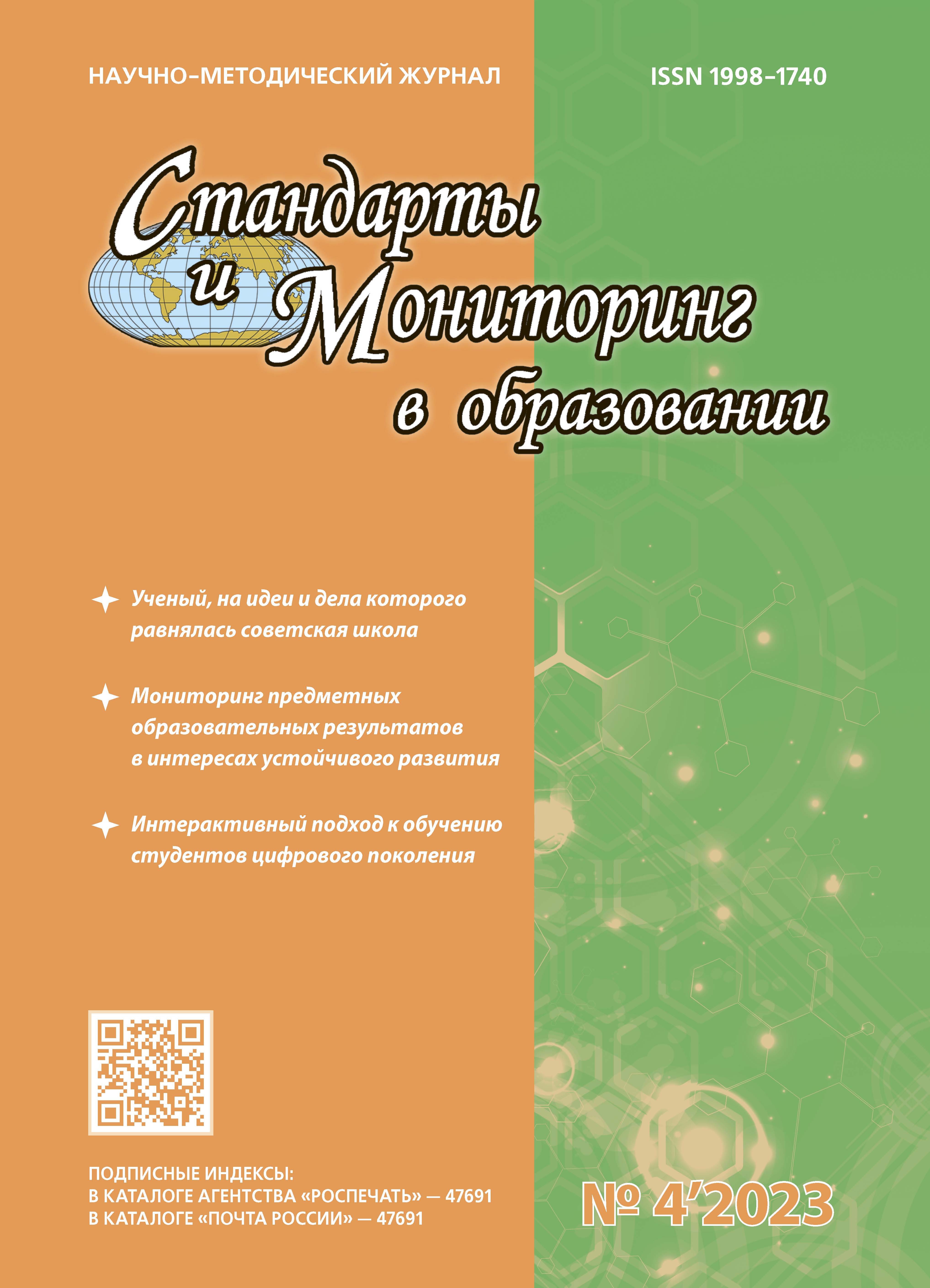Russian Federation
Russian Federation
One of the most important parameters of a student’s progress is the correct selection of control tasks when conducting an intermediate cut of knowledge. This paper proposes the optimal compilation of test tasks, taking into account their complexity, duration of execution, the number of questions in the task, the number of topics covered and the actions required to complete the task. Since each student is individual, the question arises of the correctness of providing the same control task to students with different mental and psycho-emotional characteristics. Therefore, the optimal compilation of tasks for a particular student is quite relevant. This study will improve the student’s progress and success in general, and will also remove a number of responsibilities from the teacher related to the generation of topics and tasks when compiling the test. The paper proposes to develop a hybrid system of multi-criteria optimization with two fully connected neural networks, which allows determining the most suitable model for compiling a task of control work based on a number of features of a particular student.
knowledge quality control, multicriteria optimization, genetic algorithm, Pareto set, motivation for learning, learning success, neural networks
1. Sobol N.V. Ocenka uspeshnosti obucheniya uchashchihsya // ID «Pervoe sentyabrya», festival' «Otkrytyj urok». URL: https://festival.1september.ru/articles/101368/
2. Markova, A.K., Matis, T.A., Orlov, A.B. Formirovanie motivacii ucheniya // - M.: Prosveshchenie, 1990. - 192 s.
3. Bozhovich L.I. Lichnosti ee formirovanie v detskom vozraste. -SPb.: Piter, 2009. 400 s.
4. Ancyferova L.I. K psihologii lichnosti kak razvivayushchejsya sisteme // Psihologiya formirovaniya i razvitiya lichnosti. -M., 1981.
5. Elkonin D.B. Psihologicheskie voprosy formirovaniya uchebnoj deyatel'nosti v mladshem shkolnom vozraste//Hrestomatiya po vozrastnoj i pedagogicheskoj psihologii / Pod red. I.I. Ilyasova, V.YA. Lyaudis. - M., 1981.
6. YAkunin V.A. Pedagogicheskaya psihologiya. - SPb.: Izd-vo Mihajlova V.A., 2000
7. Ginzburg M.R. Razvitie motivov ucheniya u detej 6-7 let // Osobennosti psihicheskogo razvitiya detej 6-7-letnego vozrasta / Pod red. D.B. Elkonina, A.L. Vengera. - M.: Pedagogika, 1988. S. 36-44.
8. Gutkina N.I. Psihologicheskaya gotovnost k shkole. - SPb.: Piter, 2004. - 208 s.
9. Zareckij YU.V., Zareckij V.K., Kulagina I.YU. Metodika issledovaniya subektnoj pozicii uchashchihsya raznyh vozrastov // Psihologicheskaya nauka i obrazovanie. 2014. № 1. S. 99-110.
10. Luskanova N.G. Metody issledovaniya detej s trudnostyami v obuchenii: uchebno-metodicheskoe posobie. - M.: Folium, 1999. - 32 s.
11. Matyuhina M.V. Motivaciya ucheniya mladshih shkolnikov. - M.: Pedagogika, 1984. - 144 s.
12. Nezhnova T.A. Psihologicheskie razlichiya v otnoshenii k shkole i ucheniyu u shesti- i semiletnih shkolnikov v nachale i v konce pervogo goda obucheniya // Diagnostika uchebnoj deyatelnosti i intellektualnogo razvitiya detej / Pod red. D.B. Elkonina, A.L. Vengera. - M.: NII OPP APN SSSR, 1981. S. 79-97.
13. Soldatov D.V. Diagnostika motivacionnoj gotovnosti k obucheniyu v shkole. Obninsk: Printer, 2001. - 92 s.
14. SHCHukina G. I. Pedagogicheskie problemy formirovaniya poznavatelnyh interesov uchashchihsya. - M.: Pedagogika, 1988. - 208 s.
15. Muhammad Kamal Amjad , Shahid Ikramullah Butt , Rubeena Kousar, Riaz Ahmad, Mujtaba Hassan Agha, Zhang Faping , Naveed Anjum, and Umer Asgher. Recent Research Trends in Genetic Algorithm Based Flexible Job Shop Scheduling Problems // Hindawi, Mathematical Problems in Engineering, Volume 2018, Article ID 9270802, 32 pages. https://doi.org/10.1155/2018/9270802
16. Viana, M.S.; Morandin Junior, O.; Contreras, R.C. A Modified Genetic Algorithm with Local Search Strategies and Multi-Crossover Operator for Job Shop Scheduling Problem. Sensors 2020, 20, 5440. https://doi.org/10.3390/s20185440
17. Rarità L., Stamova I., Tomasiello S. Numerical schemes and genetic algorithms for the optimal control of a continuous model of supply chains // Applied Mathematics and Computation / Volume 388, 1 January 2021, 125464. https://doi.org/10.1016/j.amc.2020.125464
18. Bakoush M. Evaluating the role of simulation-based experiential learning in improving satisfaction of finance students // The International Journal of Management Education, 20 (3). DOIhttps://doi.org/10.13140/RG.2.2.19256.47363.
19. Luo X., Sun Y., Liu Y. Course timetable optimization for a university teaching building considering the building energy efficiency and time-varying thermal perception of students // Building and Environment, 2022, 219, 109175.
20. Xu Y., Yan Ch., Jiang Y. A three-stage optimization method for the classroom envelope in primary and secondary schools in China // Journal of Building Engineering, 2022, 52, 104487. DOIhttps://doi.org/10.1016/j.buildenv.2022.109175.
21. Kurapova T. YU. Kriterii uspeshnosti obucheniya uchashchihsya obshcheobrazovatel'nyh shkol // Psihologiya v Rossii i za rubezhom: materialy I Mezhdunar. nauch. konf. Sankt-Peterburg: Renome, 2011. - S. 106-109. URL: https://moluch.ru/conf/psy/archive/32/1092/ (data obrashcheniya: 27.08.2022).
22. Dogadina, E.P.; Smirnov, M.V.; Osipov, A.V.; Suvorov, S.V. Formation of the Optimal Load of High School Students Using a Genetic Algorithm and a Neural Network. Appl. Sci. 2021, 11, 5263. https://doi.org/10.3390/app11115263.






